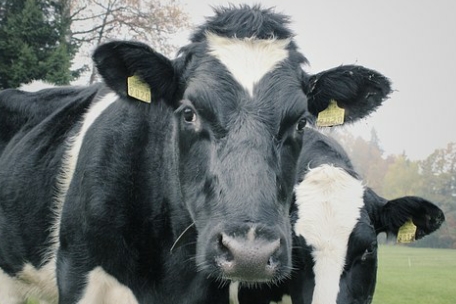Today [Saturday 28 April] is World Veterinary Day 2018 and ongoing research from the University’s Vet School has been showcased in a new YouTube video produced by the Food and Agriculture Organization (FAO) of the United Nations.
AMR is a crucial example of the importance of the One Health concept, which recognises that the health of humans is connected to the health of animals and the environment. People share many of the same health problems as animals; for instance, they both suffer from age-related diseases and infections, such as pneumonia.
AMR research at the Bristol Vet School is led by the AMR Force and the group has inspired and enacted change in AM use on farms and in veterinary prescribing practice through collaboration and dialogue with suppliers, retailers, veterinarians, software development companies, government, livestock farmers and the livestock industries.
The impact AMR Force’s research has made includes:
- Change in prescribing practice of veterinarians;
- Change in husbandry practices and medicine use of farmers;
- Increased attention for AM use and AMR in the livestock sector in policy and research;
- Increased understanding and awareness on the use of AMs and AMR on farms and in practice.
The work of the AMR Force has also resulted in sustained and productive interdisciplinary collaborations and engagement with farmers, veterinarians and other organisations that deliver products and services to market including retailers, suppliers, and farm assurance and industry to influence effective change in the use of AMs in the livestock sector.
David Barrett, Professor of Bovine Medicine, Production and Reproduction at the University’s Vet School, said: “The Vet School has been working hard to lower the use of critically important antimicrobials. While it is the responsibility of every vet, farmer and doctor to use antimicrobials responsibly it is also something that requires global leadership. We are all ready for the challenge, and if we all work together, we can succeed.”
Andrea Turner, Farm Animal Veterinary Surgeon at Langford Vets, explained: “It is important that farmers and veterinarians have access to antimicrobials when they are needed to treat animal disease. To protect the industry, the food chain and ultimately human health. However, these medicines should be used as little as possible, but as much as necessary.”
The AMR Force members have contributed to a number of initiatives including leading the British Cattle Veterinary Association and the British Veterinary Association Medicines Committees, developing a major retailer’s antimicrobial stewardship policy using participatory methods along with dairy farmers, training veterinarians and farmers across a number of veterinary practices on responsible antimicrobial use, and informing industry and legislative bodies including the Veterinary Medicines Directorate (VMD) and the Responsible use of Medicines in Agriculture Alliance (RUMA).
Paper:
